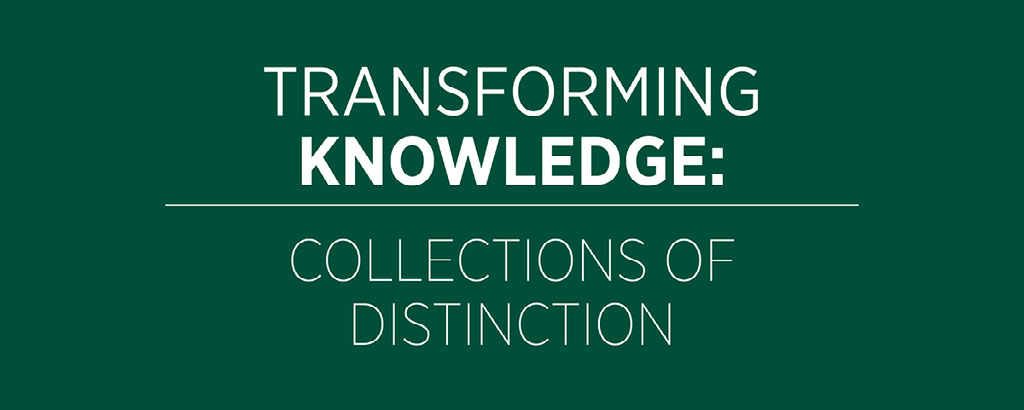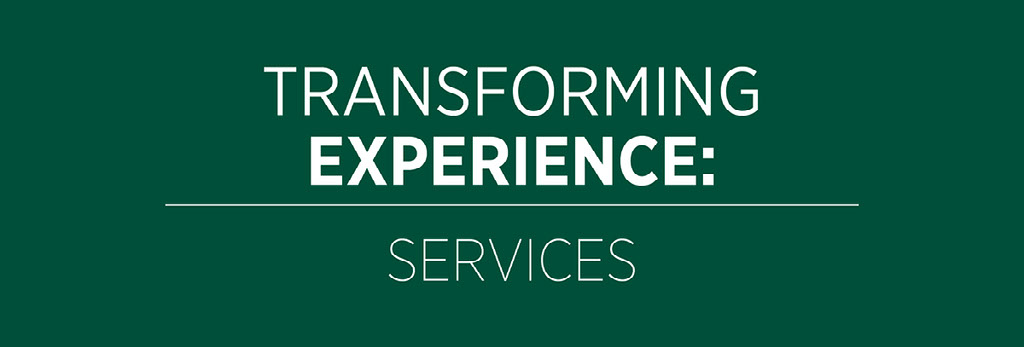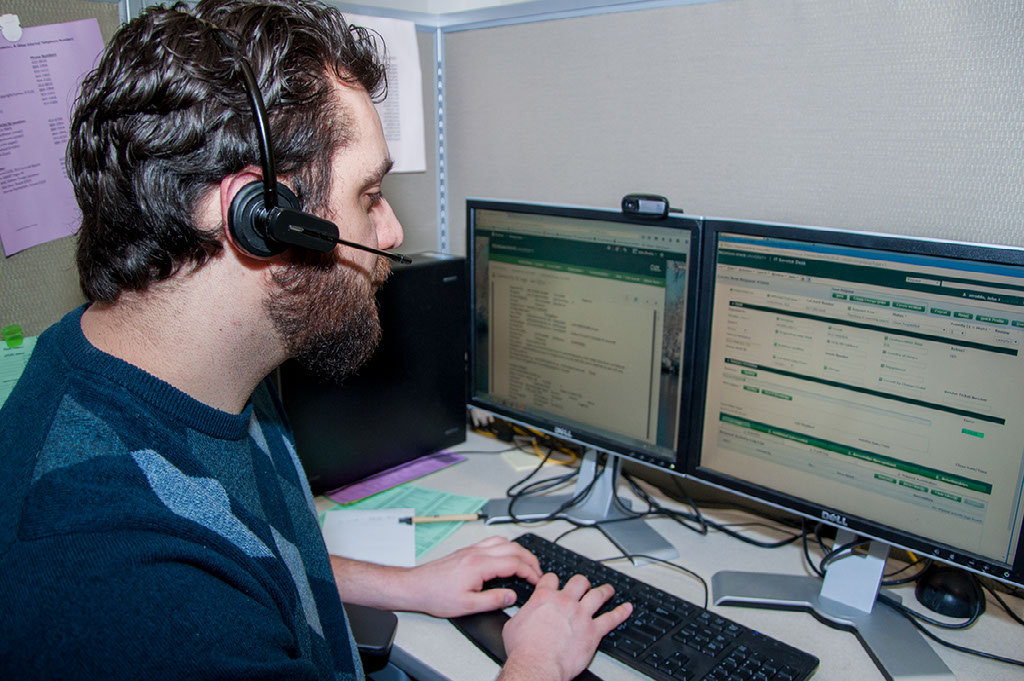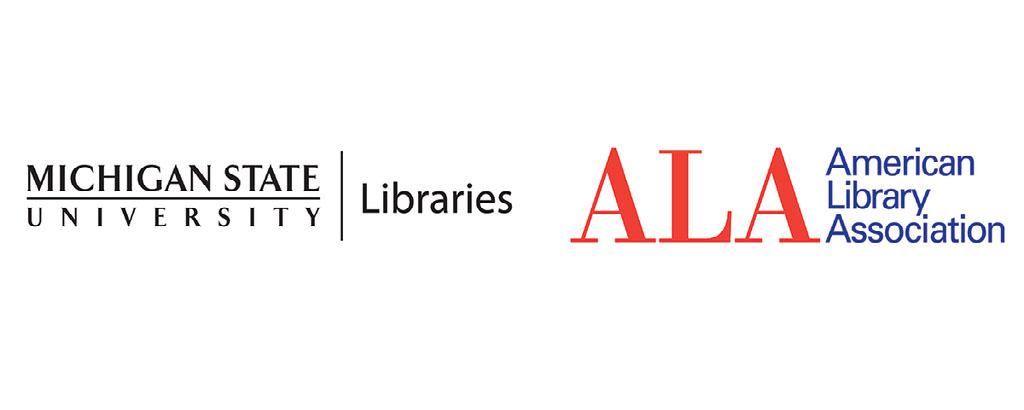MSU Libraries Transform Access, knowledge, and experience
MSU Libraries transform the Spartan experience.
Our collection includes nearly 7 million physical items, as well as access to over 2 million digital and electronic texts. Over 90 librarians, 125 staff, and hundreds of student employees make this giant enterprise work. From a Main Library that is open 24 hours during the week, to a digital library for our health science partners across the state, we aim to be your complete brick and click research experience. During National Library Week, take this virtual tour “behind the scenes” to see how the library works.

ACquisitions & Mail Room
Acquisitions orders and processes all new books, journals, and other materials. Our Mail Room staff receives and distributes all incoming mail and collection-related materials, as well as maintains the Libraries' internal store of supplies.
The Libraries received over 29,000 print materials and 4,361 media materials in 2015, and then added over 850,000 DVD and CD titles as part of the ROVI Media Collection.
Catalog services & Maintenance
Catalogers find and create descriptions of everything the library collects. Staff in Catalog Services keep the catalog and other systems up and running, while staff in Catalog Maintenance take care of quality assurance in the catalog’s data and get new materials labeled and ready to circulate.
The Libraries catalog and process about 4,500 items per month. That doesn’t include batches of records that are loaded into the catalog from subscription-based materials, numbering in the 10,000’s!
Stacks Maintenance
Stacks Maintenance is responsible for the daily pick up and shelving of library materials throughout the Main Library. In order to do this, students are required to learn the complex Library of Congress call number system.
Over 10,000 volumes are shelved in a normal week. The goal is to shelve every volume that comes to Stacks within 24 hours.
conservation & binding preparation
Staff of the Wallace Conservation Lab stabilize and sustain the Libraries' collection. They repair damaged books from the circulating collection, as well as perform more complex treatments on old and rare books and maps. The Binding Preparation unit coordinates the binding and rebinding of books and journals for the Libraries by a commercial bindery specializing in library materials. They also prepare material for mass deacidification to neutralize acids that can harm paper and books.
IN 2015, THERE WERE:
803 books repaired
1881 pamphlets bound
315 maps conserved
687 protective boxes made
5806 journals sent to commercial bindery
6204 books sent to commercial bindery
553 books sent for mass deacidification
Photo courtesy of Harley Seeley
Systems & Web Services
The Systems unit evaluates, installs, and maintains computers, servers, mass storage, and networks for use by MSU students, faculty, and staff, and supports digital and multimedia resources used around the world. Web Services designs, creates and maintains web-related content, services and applications for the MSU Libraries.
Our homepage was visited over 2 million times in 2015!
The Main Library is also the largest computing lab on campus, with over 400 PCs and Macs, wireless accessibility, and hundreds of network ports.
Development
The Development Office helps to raise money to fulfill the Libraries’ mission through grants, donations, and endowments.
In 2015, the Libraries' Development team helped acquire the Rovi Media Collection, which includes over 725,000 music CDs, 165,000 DVDs, and 17,000 video games, making it the largest library media collection in the United States.

Special Collections
Special Collections builds, preserves, and makes accessible important research material such as the Popular Culture Collection, which includes zines, cookery, and the country’s largest collection of publicly-available comics; as well as extensive collections in radicalism, early veterinary medicine and early fencing materials.
Special Collections holds over 450,000 printed works, numerous manuscript and archival collections, and an extensive collection of ephemera.
The oldest book in Special Collections was printed by Nicolas Jenson in Venice in 1472, entitled Scriptores Rei Rusticae.
Africana collection
The Africana Collection is one of the largest and best in the United States, having been built up since 1960 to support broad faculty involvement in research and development projects on the continent. Online resources on Africa include cutting-edge digital libraries, full-text journal suites from Africa and MSU digital projects.
The Africana collection holds roughly 270,000 books, journals, maps, films, archives, and microform units and online resources that cover all areas and disciplines.
Turfgrass information center
The Turfgrass Information Center houses the most comprehensive publicly-available collection of turfgrass research and educational materials in the world. It has also continuously produced the Turfgrass Information File (TGIF) database since 1983. The Turfgrass Information Center and TGIF database are irreplaceable resources for students, researchers, and professionals around the world who are responsible for maintaining golf courses, lawns, athletic fields, and managed landscapes of every kind.
The TGIF database contains over 250,000 records, 60% of which are full-text, and has 78 academic institutional subscribers worldwide.
Photo courtesy of MSU Communications and Brand Strategy
kline digital and multimedia center & Vincent Voice Library
The G. Robert Vincent Voice Library is a vast collection of spoken word recordings. Clients include students and faculty of Michigan State University as well as broadcasting networks, news agencies and film, video, and web production companies. The Gerald M. Kline Digital and Multimedia Center (DMC) offers both online and traditional media collections, which are designed to meet research needs across many different disciplines and subject areas. The DMC also serves both the MSU community and the worldwide academic community through digitization projects that preserve scholarly resources.
The Vincent Voice Library contains over 40,000 hours of spoken word recordings, dating back to 1888. This includes the voices of over 100,000 people, including every U.S. President since Benjamin Harrison in 1889.
Branch Libraries
Branch libraries are located on and off-campus, online, and throughout the Main Library. Our two external branches include the Gast Business Library and the Gull Lake Library.
The Gast Business Library collection includes over 6,000 e-journals, 13,000 e-books, and over 60 databases. Over 100 computers, 7 collaborative study rooms and a collaborative technology lab are available. The Business Library can seat 500 guests and frequently attracts 2,500-3,000 visitors per day.
Photo courtesy of Louis Villafranca
Fine Arts
The Fine Arts Library is located in the West Wing of the Main Library. It houses the collections for art (including the visual arts, architecture, and photography) and music (including scores, recordings, and books).
The Fine Arts Library contains a collection of music CDs, ranging from Bach to Beethoven to Bob Dylan.
Map Library
The Map Library is located on the third floor of the west wing in the Main Library. It houses the maps and atlases collections, and now offers extensive resources and training in GIS (Geographic Information Systems) for MSU students, faculty and staff.
The collection consists of approximately 236,000 sheet maps, 14,000 folded geologic maps, and 4,000 atlases, gazetteers and other reference aids including wall maps, globes, CDs, electronic resources, and rare maps. The collection is especially strong in Michigan, United States, Canada, Africa, Asia, and Latin America, though all areas are collected at some level.
Government Documents
The Government Documents collection houses the Libraries' depository collections for the Canadian, European Union, and United States federal governments and their organizations. It also contains publications from the State of Michigan, the United Nations, and other international intergovernmental organizations.
MSU Libraries receives 75% of federal depository materials that are distributed by the U.S. Government Publishing Office in electronic, print, and fiche formats, including over 540,000 digital/electronic documents. In 2015, documents within the Federal Depository Library Program Electronic Collection were accessed through the libraries’ websites 77,867 times.

Circulation & remote storage
Circulation is the first point of access for all patrons entering the Main Library. This department circulates thousands of books and reserve items, including items paged from our high density Remote Storage facility located off-campus. It also circulates course reserves, hold items, and interlibrary loan material; manages first floor study rooms; troubleshoots compact shelving; manages MSU Print printers; and reports security and building problems. In addition to books, Circulation also checks out little-known items such as calculators, bike locks, and phone chargers.
Items checked out by MSU patrons from January-April 2016:
Undergraduates: 15,869
Faculty/Staff: 11,181
Graduate Students: 9,295
Reference, Information Literacy, & Digital curation
Librarians are eager to partner with patrons who have research needs. Reference Services provides reference and research assistance to students, faculty, and staff of MSU and community users. In-person assistance is available at the Reference Desk on the first floor of the Main Library. Librarians are also available through email and 24/7 chat or IM services. Student Peer Research Assistants are available for drop-in research help at four neighborhood Engagement Centers. Information Literacy librarians teach students in first-year writing courses. Approximately 50 subject librarians build the collection and provide reference and instruction in specific fields. Librarians in the Digital Curation unit are available to advise faculty, staff, and students on data management planning and consult on digital projects, among other duties.
In the past 12 months, 18,463 reference questions were answered. Librarians taught 727 instruction sessions, reaching a total of 35,469 students.
Events & Outreach
MSU Libraries sponsors over 100 events and training sessions a year, including films, author talks, colloquia, garden tours, citation management, digital humanities classes, and stress-relief activities for finals week.
The MSU Libraries host events during Finals Week, including therapy dogs, a coffee and juice bar, a photo booth, and the Night of a Thousand Donuts!
Espresso Book Machine
The Espresso Book Machine (EBM) is one of only a few dozen in the world. Able to print a 200-page book in less than ten minutes, it makes publishing even more accessible to MSU faculty, students, staff and the public. The machine takes PDF files and turns them into full-color, library-quality paperbacks. The EBM allows you to make anything from textbooks to comics; anthologies to genealogies; portfolios to novels.
The EBM has printed more than 18,000 books, totaling more than 2,000,000 pages.
Copy Center & Make Central
In the Copy Center, you can print, plot, and scan almost anything! You can also purchase office supplies such as folders, envelopes, index cards, flash drives, and highlighters. Make Central is the libraries’ makerspace, which houses several 3D printers, a laser cutter, a vinyl cutter, and borrowable circuit kits.
Make Central offers workshops that instruct the public on how to use technologies such as 3D-printing, digitization methods, and other innovative systems.
The Copy Center prints approximately 4,000 posters per year. The week before exams, they print about 600-700 posters in one week!
Distance Learning Services
Distance Learning Services is designed to meet the research and information needs of students and faculty in off-campus or online courses and units. This department also provides full support for the Desire 2 Learn courseware system.

DLS assistance is available 24/7; for local patrons at our East Lansing campus, as well as for patrons across the globe.
InterLibrary Services
The InterLibrary Services (ILS) department borrows materials not available in the MSU Libraries on behalf of MSU's faculty, staff, and students. In addition, ILS lends MSU materials to other libraries.
MSU Libraries is the 31st biggest lender in the world. In 2015, we received a total of 92,503 lending requests from libraries around the world and we submitted a total of 23,716 borrowing requests to other libraries.
Facilities
Facilities supervises the operations involving movement, transportation, and maintenance of library furniture, shelving, and machines. They move shelving projects, work with our User Experience unit on wayfinding signs, and work with the university's Infrastructure and Planning unit to keep the collections safe and patrons comfortable.
Staff in Facilities work hard to maintain the space at the Main Library. They take care of four floors in each of two wings (East and West) which are filled with movable shelving, exhibit cases, and study spaces for students and faculty alike.
Course Materials & Copyright office
The Course Materials Program offers paper and e-coursepacks and print on demand. They work with the Copyright Office to attain copyright clearance.
The Course Materials Program provides some of the best prices on campus for coursepacks.
Cyber Café
The Main Library’s coffee shop, the Cyber Café, has hot and cold drinks, salads, soups, sandwiches, and snacks.
The Cyber Café is open whenever the library is open and accepts Combo X-Change. It's one of 21 locations on MSU's campus.
Thank You!
This was a project created to be a part of National Library Week 2016. For more information, please visit:
